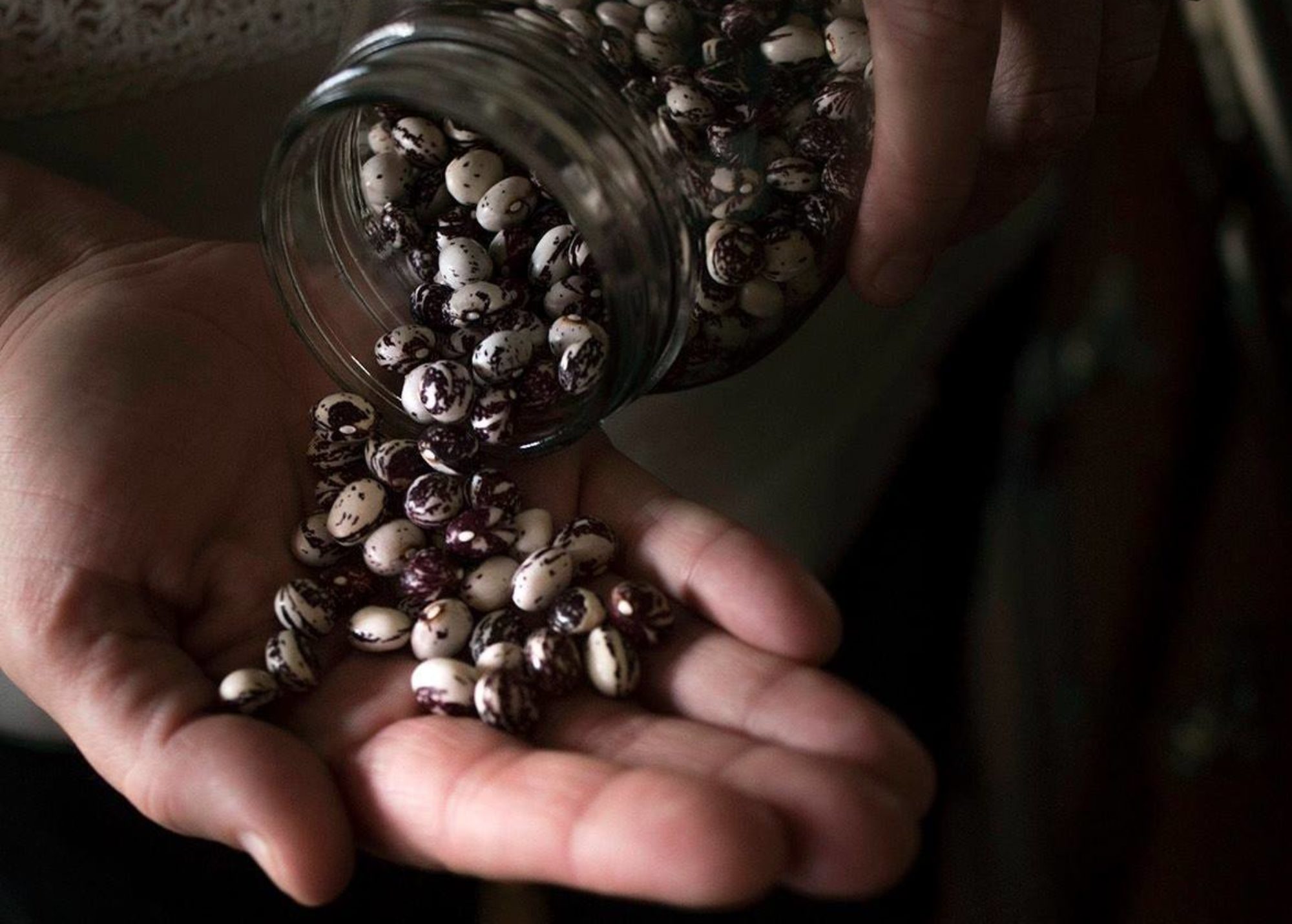People often ask “how should I store my seeds?”, which is an excellent question. The question itself recognizes that we need to take care of the seeds when we aren’t using them, and that seeds are not lifeless items that can be stored any old way we want, but rather are living things that require specific conditions to prolong their life, without which they will die. Seeds are baby plants, and when we know the time is right to grow them, we will plant them in warm soil, water them, and make sure they have adequate light when they germinate. Knowing this effectively tells us what conditions we need to provide them in storage: the opposite conditions! So cool-cold temperatures, no soil or organic matter, very dry/no water, and preferably low light or even darkness. Of these, the most important factor is DRY. As you clean and thresh your seeds, you should be able to ensure that no insects are hiding out amongst them: that’s clean enough! Then make sure they are dry and keep them consistently cool and out of direct sunlight.
So, how should I store my seeds? In order of importance, dry and clean are tops! Then cool and dark as you are able. For instance, if you have to choose between storing your clean seeds in a damp dark cool basement OR a dry, but light and room temperature shelf: go for the shelf.
Glass jars are great for keeping seeds safe, as long as you open the lid to give them air occasionally. Putting the seeds in a paper envelope inside the jar allows you to label the envelope with their name and the year you grew those seeds. Always label your seeds somehow! In general, paper envelopes work very well, but they can be chewed open by mice, so if you have mice in your house (or other chewing pests who might eat seeds), use a glass jar. Plastic may work for short-term storage, but remember that plastic breaks down over time, which could contaminate your seeds. And it is also chewable.
If this all sounds complicated, don’t worry. Seeds are very resilient, and the most important thing is to stay in touch with them, to make a connection with them. Once you are connected with a variety, you will find that you intuitively care for those seeds in the way they need (although you may make some mistakes along the way: so always keep a back-up)!

